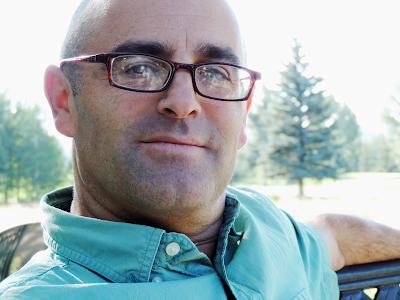According to Jewish atheist Philip Zuckerman, "Staunch atheists show higher morals than the proudly pious, from the pandemic to climate change." In this self-parodying Salon article -- click the link, it's real, I didn't make it up! -- we learn that practicing Christians are less moral than atheists because:
- 45% of white (white? yes, white!) Evangelicals said they would definitely not get pecked, compared to 10% of (any-color) atheists.
- Only 33% of white Evangelicals "accept the evidence that human activity is causing climate change," compared to 80% of "secular Americans" of any or no color.
- Only 45% of white Evangelicals want to ban assault rifles, compared to 77% of atheists.
Those are this three main points. (And let me just point out in passing how totally racist it is for Mr. Zuckerman to equate piety with being white.) The next set of points are from a paragraph full of hyperlinked buzzwords like "death with dignity" and "animal rights." I clicked them all so that you don't have to. Here are the findings:
- Evangelicals (any color this time!) are the group least likely to think the US has a responsibility to accept refugees.
- White Evangelicals (there they are again!) are less likely than white non-Evangelicals to support Obamacare.
- Theism correlates with supporting "sex education" that stresses abstinence rather than contraception.
- Those who believe in life after death tend to have less positive views of "voluntary euthanasia."
- Religiously affiliated people are less likely to say that "homosexuality should be accepted by society."
- Christians are more likely than non-Christians to say that "gender is determined at birth" and that "society has gone too far in accepting transgender people."
- Religious people and those who reject Darwinism are less likely to have considered vegetarianism, more likely to say that medical research on animals is sometimes "necessary and valid," more likely (obviously!) to agree that "God put animals on Earth for man to use," and less likely to agree that (not making this up!) "it is wrong to wear leather jackets and pants."
- The religious are more likely to support "military action" (no further details available without paying for the article).
- The religious are more likely to believe that "the use of torture against suspected terrorists can sometimes be justified."
- White Evangelicals (our old friends!) are more likely than atheists to support the death penalty.
- "Parents who attend religious groups used corporal punishment more frequently than parents who did not attend religious groups" (but "there were no effects for religious participation on physical abuse").
- Those with "absolute views of religious truth" (a category that surely includes many atheists!) are more likely to be judged "authoritarian" by a psychological questionnaire.
- Watching a "compassion-inducing video had a big effect on [the] generosity" of non-religious people but "did not significantly change the generosity of more religious participants." Takeaway: "Highly religious people are less motivated by compassion than are non-believers."
And that's it! Not a single data point addressing uncontroversially immoral behaviors such as lying, stealing, or committing violent crimes. Again I remind you that the three "moral" issues highlighted by the article were: getting the peck, believing in anthropogenic global warming, and agreeing that a particular sort of weapon ought to be illegal. That is the article's definition of "higher morals"!
The paragraph about abortion is worth quoting in full.
But wait — what about the rights of the unborn? While many people oppose abortion on decidedly moral grounds, it is also the case that many others support the right of women to maintain autonomy over their own reproductive capacities, on equally moral grounds. Hence, the deep intractability of the debate. And yet, most Americans — both religious and non-religious — do not see the abortion of a non-viable fetus as being akin to the murder of a living human being. And let's be frank: It is impossible to square the assertion that the strongly religious are "pro-life" while they simultaneously refuse to get vaccinated, to wear a mask, to fight climate change, to support universal healthcare, or to support sane gun legislation. To characterize such an agenda as "pro-life" renders the label rather insincere, at best.
Abortion, you see, is different, because both sides hold the view they do on "moral grounds." Implicitly, this is not true of any of the other controversies listed, where one side is assumed without argument to be the moral one. People who support killing babies in the womb for convenience should not be judged immoral, because they are motivated by a concern for "reproductive autonomy." Those who support torturing suspected terrorists, on the other hand -- well, what possible motives could they have, other than a callous unconcern for human suffering?
One more bit I just have to quote -- and I assure you once again that this is not a satire and I am not making any of it up. Philip Zuckerman is a real person, not a character in a Nathan Roth novel.
[M]embers of religious congregations tend to donate more money to charity, on average, than the unaffiliated. And of course, the 20th century has witnessed the immoral, bloody brutality of numerous atheist dictatorships, such as those of the former USSR and Cambodia.However, despite such complexities, the overall pattern remains clear: When it comes to the most pressing moral issues of the day, hard-core secularists exhibit much more empathy, compassion, and care for the well-being of others than the most ardently God-worshipping.
That's right. On the one hand, atheism brought us Stalin and Pol Pot -- but on the other, more atheists believe in global warming! One thing we can all agree on: despite such complexities, the overall pattern remains clear.





